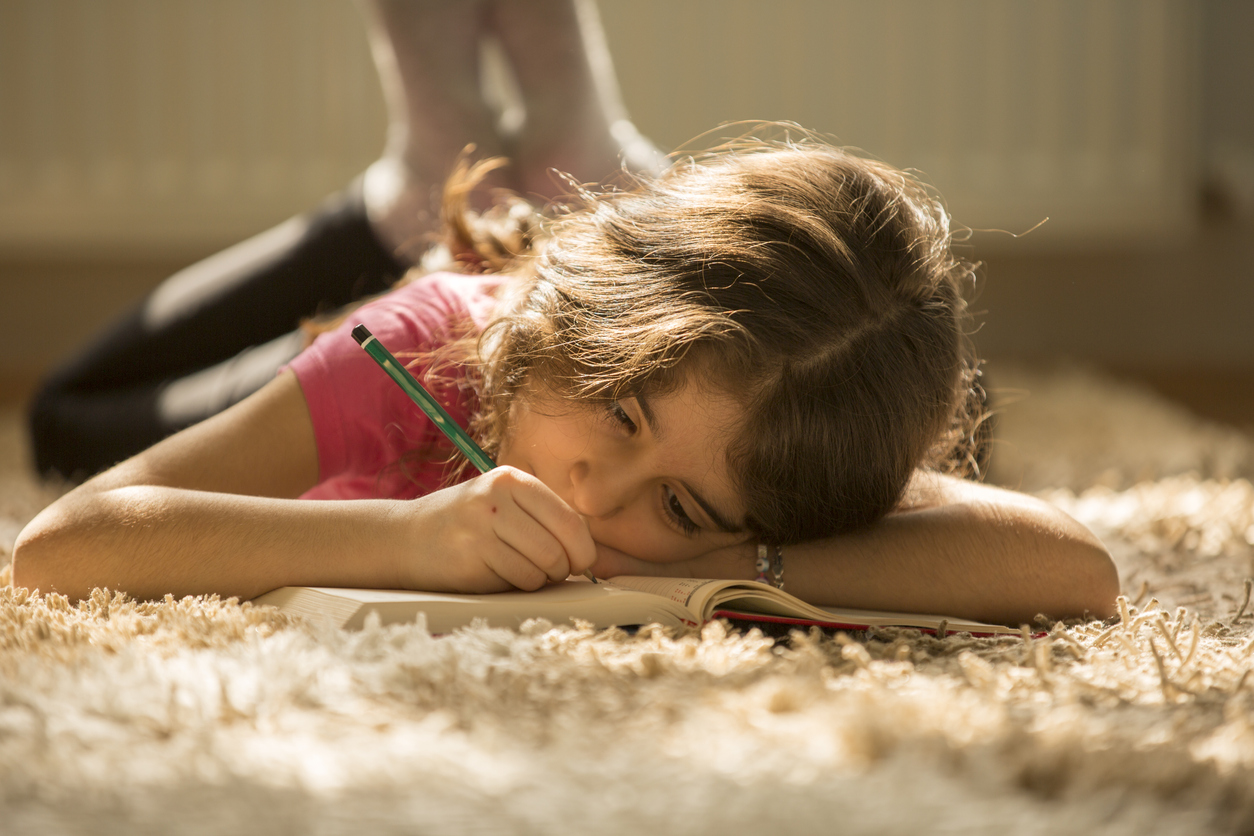5 Ways to Celebrate World Poetry Day

Poetry is a valuable form of expression that allows people to freely relate their emotions and is a powerful tool for communication and storytelling. William Wordsworth once said, “Poetry is the spontaneous overflow of powerful feelings: it takes its origin from emotion recollected in tranquility.”
It is worth celebrating World Poetry Day and National Poetry Month with your child this new year – discovering the genre of poetry has multiple academic and cognitive benefits for children.
World Poetry Day
World Poetry Day is celebrated on March 21st every year. The United Nations Educational, Scientific, and Cultural Organization, UNESCO, established World Poetry Day during its 30th General Conference in Paris to: protect endangered languages, bring back oral traditions of reciting poetry, encourage the teaching of poetry, and promote linguistic diversity.
Poetry is an art form that is practiced everywhere. Praising poets and their work, and encouraging national and international poetry movements on this special day, bring people all over the world together. Many schools across the USA celebrate this international day, and parents should encourage their children to do the same.
Why Is Teaching Poetry Important?

You should encourage your children to participate in World Poetry Day this year because reading poetry fosters creativity, expands vocabulary, aids cognitive development, and encourages a greater passion for reading.
It Fosters Creativity
Poetry shows children that their emotions can be expressed in many various ways that go beyond literal descriptions. Poetic devices such as similes, metaphors, personification and irony all offer creative, less literal ways of relating a particular feeling or emotion.
According to the National Library of Medicine, NIH, research shows that writing and reading poetry improves creativity and encourages new ways of thinking in both children and adults.
It Expands Vocabulary
Writing and reading any literary art-form, including poetry, expands our vocabularies – and this is true for both adults and children. The more children are exposed to literature, the more vocabulary they will internalize and remember.
To write an engaging poem, authors often have to develop new connections between words that wouldn’t ordinarily appear alongside one another. Reading poetry can therefore also encourage children to create new connections between different words that they already know and use, broadening their understanding of their own internal vocabulary.
It Aids Cognitive Development
The musical structure of poetry encourages children to spot patterns between different words, aiding their development of sentence structure. The particular type of sequencing that is found in rhyme helps a child’s brain to process information and aids cognitive development, which can benefit them later in life when learning academic subjects such as foreign languages and mathematics.
It Encourages a Greater Passion for Reading
Many children struggle with reading long narratives when they are first learning to read, as it requires concentration and sitting still for long periods of time. Poetry is a shorter and more concise method of storytelling than other literary art-forms, making it easier for children to engage with and a great genre to focus on when trying to encourage a passion for reading within your child.
By teaching kids poetry, they may become poetry lovers and even begin to write their own poems. It’s important to instill confidence within your child when it comes to engaging with poetry by explaining to them that you do not have to be a professional to write a poem – anyone and everyone can be a poet.
5 Ways to Celebrate World Poetry Day

You can inspire your child to fall in love with poetry and celebrate World Poetry Day this year by introducing your child to influential poets, enrolling your child in poetry competitions, encouraging them to write slam poetry or haikus, and accompanying them to poetry recitals.
1. Introduce Your Child to Influential Poets
The poets listed below are doing their bit to change the world by writing poetic expressions about the modern challenges they struggle with every day, using their voice to represent the lives of people all over the world.
- Amanda Gorman
Amanda Gorman is an American poet and the youngest inaugural poet. She addresses modern issues and movements in her work such as feminism, racism, and oppression. She created an organization, One Pen One Page, to help promote youth literacy. Her main mission is to spread the message that writing is an art form that can have the power to create the change we want to see in the world.
- Rupi Kaur
Rupi Kaur is a modern poet that has gained popularity through social media. Many young women love reading her work because it illustrates the common, everyday problems that women all over the world face, including abuse, pain with menstruation, and gender inequality.
- Cathy Park Hong
This Asian American poet has won many awards for her poems. Her work portrays the challenges regarding racial identity in America today. Her poem Minor Feelings depicts the raw experiences of Asian Americans living in America and has received a lot of positive attention.
- Brandon Leake
Brandon is an American that won the 15th season of America’s Got Talent with his poetry. His poems are filled with raw emotions related to his family members. He also founded an organization that helps children discover their identity through writing poetry.
- Shane Koyczan
Shane is a Canadian poet that is famous for writing about problems that many teenagers face in life such as bullying and eating disorders.
- Fatimah Asghar
Fatimah’s poetry is a depiction of the voices of minority groups that are usually underrepresented. She talks about her experiences in America as a Pakistani Muslim woman.
2. Create Poetry Slams or Haikus With Your Child
Slam poetry is a type of spoken poetry that tells a story and is performed in front of an audience. You can create a poetry slam with your child by following the steps below:
- Get familiar with what slam poetry is and how it works. An easy way to do this is to watch YouTube videos of slam poetry performances.
- Choose a theme or topic with your child that you want the poem to be based on. Ask your child about what is personal to them or ask them to talk to you about a change that they wish to see in the world.
- Start crafting the poem, based on the theme. You can have fun with unconventional rhyming structures or follow a simple rhyming structure.
- Once you’ve crafted your poem, read it out loud to some family members and ask for feedback. Make edits where necessary.
- Keep practicing the poem in front of other people, focusing on your volume, tone, and facial expressions. Remember, slam poetry is performed, so it’s similar to acting.
- Once you’re ready, sign up for a local poetry slam.
If your child doesn’t want to write slam poetry, they can try writing their own haiku. Writing a haiku is simple – the form is made up of only three lines with five, seven, and then five syllables. It’s a great genre to start with.
3. Enroll Your Child in Poetry Competitions
Competitions are a great way to have fun with poetry and develop your child’s confidence. Here is a list of poetry competitions your child can enter:
- Bennington Young Writer Awards
High schoolers from 9th grade to 12th grade can enter this competition. According to Bennington College, the students must write a selection of three poems in order to enter. There is a cash prize for the winner.
- Bridport Prize Creative Writing Competition
According to Bridport Prize, children over the age of 16 can enter this competition. The poem must be a maximum of 42 lines, it should be the author’s own work, and it should not be previously published. The winners receive a cash prize and are provided with more opportunities to showcase their work!
- Rattle Young Poets Anthology
Students aged 18 or younger can participate in this competition. According to Rattle Young Poets Anthology, each student can submit four poems, and the best 50 poems are published.
- Classic Poets
High schoolers can participate in this competition. According to Classic Poets, any high school student from any country can submit a poem. Their website has many poetry competitions. The winners receive $100.
- The Patricia Grodd Poetry Prize for Young Writers
This competition is for high school sophomores and juniors. They must submit an unpublished poem. According to the Patricia Grodd Poetry Prize, the winners get a scholarship to the Kenyon Review Young Writers workshop, and their poems will be published in the Kenyon Review, which is one of the nation's most popular literary magazines.
4. Accompany Your Child to Poetry Recitals
Poems by nature are meant to be read out loud or performed. After attending a poetry recital, your child might get inspired to write a poem of theirs and recite it in front of a big audience.
5. Get a ‘Poem Prescription’
The Poetry Pharmacy was curated by William Sieghart as a way to emotionally soothe people’s ailments. If your child is struggling with anxiety, the aftermath of a recent break-up, or is feeling lonely, there will be a poem prescription in here to ease their worries and provide comfort.

